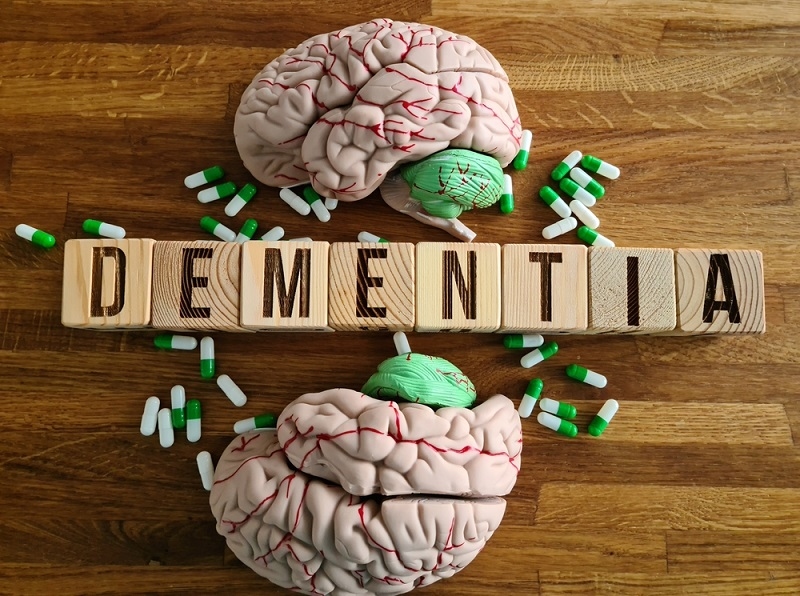Early Signs of Dementia: What You Need to Know

Dementia is a progressive condition that affects cognitive abilities, memory, and daily functioning. Early detection of dementia is crucial for timely intervention and improved quality of life. By staying alert and informed about the early signs of dementia, individuals and their loved ones can take proactive steps to seek medical attention and implement strategies to support brain health. In this article, we will explore the early signs of dementia that should not be ignored.
Difficulty with Planning and Problem-Solving
Dementia can significantly impact an individual's ability to plan, make decisions, and solve problems. Tasks that were previously manageable may become increasingly challenging and overwhelming. For example, following a recipe and organizing the necessary ingredients and steps may become confusing and frustrating. Managing finances, budgeting, and making sound financial decisions may become difficult. This decline in planning and problem-solving abilities can have a significant impact on daily life and independence.
Confusion and Disorientation
Individuals with early-stage dementia may experience confusion in familiar environments or struggle with maintaining a sense of time and place. They may find themselves becoming disoriented even in familiar surroundings such as their home or neighborhood. Simple directions, like following a map or navigating through a familiar route, may become increasingly challenging. This confusion and disorientation can lead to feelings of anxiety, frustration, and a loss of confidence in one's ability to navigate the world around them.
Memory Loss

One of the earliest signs of dementia is persistent memory loss. Individuals may have difficulty remembering recent events, names of familiar people, or important appointments. Simple tasks that require remembering steps, such as following a recipe or completing a familiar routine, can become increasingly challenging. They may rely heavily on memory aids such as notes, calendars, or electronic reminders to compensate for their memory difficulties. Loved ones may also play a crucial role in providing reminders and support.
You may also like: 5 Medical Myths About Dementia
Decreased Ability to Adapt to Change
Individuals with dementia may struggle with adapting to new situations or changes in routine. They may become agitated or resistant to even minor alterations in their environment or daily activities.
Impaired Judgment and Decision-Making
Dementia can affect an individual's judgment and decision-making abilities. They may exhibit poor judgment in financial matters, making impulsive purchases, or falling prey to scams. Their ability to assess risks and make sound decisions may become impaired. This can lead to potentially harmful situations, both in personal and professional contexts. Loved ones and caregivers need to be vigilant in monitoring and providing guidance to ensure the individual's safety and well-being.
Changes in Mood and Personality
Dementia can bring about significant changes in mood, personality, and behavior. Individuals may experience unexplained mood swings, ranging from irritability and agitation to periods of apathy or withdrawal. They may exhibit changes in their personality traits, such as becoming more reserved or exhibiting uncharacteristic behaviors. Depression and anxiety are also common in individuals with dementia. These changes can be distressing for both the individual and their loved ones, and it is essential to seek appropriate support and resources to manage these emotional and behavioral changes effectively.
Challenges with Motor Skills and Coordination
Dementia can impact an individual's motor skills and coordination. They may experience difficulties with balance, have trouble walking or performing familiar tasks, or exhibit tremors and coordination problems.
Difficulty with Language and Communication
Early signs of dementia can manifest as difficulties with language and communication. Individuals may struggle to find the right words to express themselves, frequently pausing or using vague terms. They may repeat phrases or questions multiple times without realizing it. Following and participating in conversations may become increasingly challenging, leading to frustration and social withdrawal. Loved ones and caregivers can help facilitate communication by providing patience, allowing ample time for the individual to express themselves, and using supportive communication techniques.
Sleep Disturbances

Sleep disturbances can be an early sign of dementia. Individuals may experience changes in their sleep patterns, such as insomnia, excessive daytime sleepiness, or restless sleep. These disruptions can contribute to daytime fatigue and impact cognitive functioning.
Loss of Initiative and Motivation
Individuals with dementia may experience a decline in initiative and motivation. As the disease progresses, they may become increasingly passive and disinterested in activities they once enjoyed. Simple tasks such as getting dressed, preparing meals, or engaging in hobbies can feel overwhelming and may require more prompting and assistance. This loss of motivation can contribute to social withdrawal and a reduced quality of life. Caregivers and loved ones can help by providing gentle encouragement, breaking tasks into smaller, manageable steps, and creating a supportive environment that fosters engagement and participation.
Intuition and Gut Feeling
Interestingly, many individuals with dementia rely on their intuition or gut feeling to compensate for memory and cognitive challenges. As their factual recall diminishes, they develop strategies to navigate daily life based on instinct and intuition. These intuitive cues can guide them in making decisions, recognizing familiar faces, or finding their way in familiar environments.
Caregivers and family members can support this intuitive approach by trusting the individual's instincts, providing visual cues or reminders, and creating a consistent and familiar routine. By acknowledging and respecting the power of intuition, we can help individuals with dementia maintain a sense of independence and confidence in their abilities.
Learn More: Self-Care and Support: 20 Tips for Living with Dementia
Conclusion
Recognizing the early signs of dementia is crucial for early intervention and improved outcomes. If you or someone you know experiences any of the mentioned symptoms, it is important to consult a healthcare professional for a comprehensive evaluation. Remember, early detection not only allows for timely intervention but also provides access to support services, treatments, and strategies to enhance brain health and overall well-being. Stay alert, stay informed, and take proactive steps to promote brain health and a fulfilling life.
This content was created by AI
